
All Tristen Ainsworth wanted was a chance – a chance to work, a chance to make friends, and a chance to be valued for exactly who he is.
He found that chance at Fernco Inc. in Davison.
“The diversity and the flexibility of this job feel fantastic because it not only keeps my hands busy, it keeps my mind sharp, too,” said Ainsworth, who has Asperger’s syndrome, a form of autism.
“This is the first job I’ve ever had where I can relate to people and just have a good laugh with them.”
The 27-year-old Fenton man started a year ago in Fernco’s SPARK program, a company initiative providing employment opportunities to people with autism. Ainsworth is one of 30 SPARK employees at Fernco, a leading manufacturer of flexible PVC pipe connections with 325 workers.
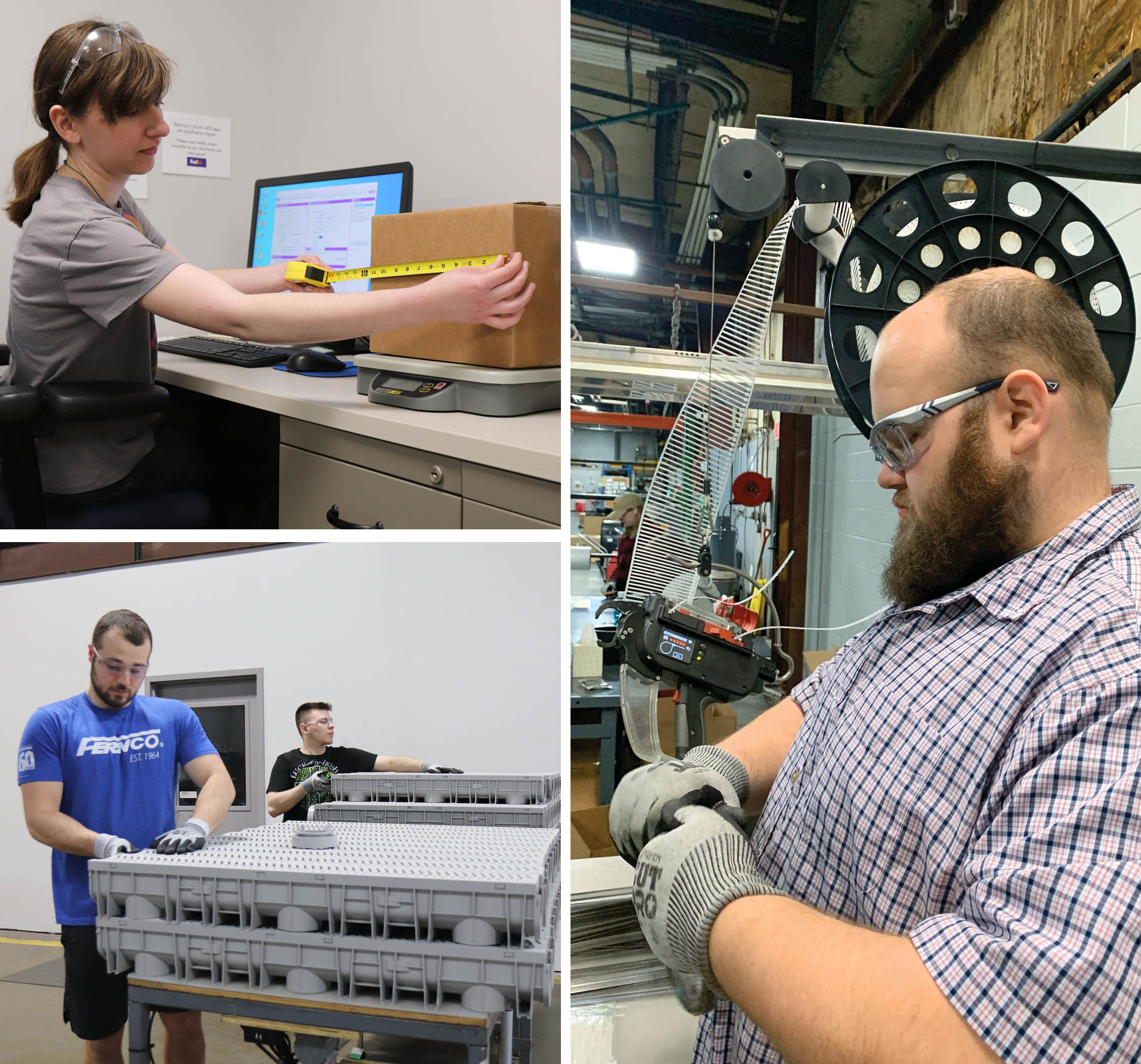
Inspired by a documentary featuring a father’s efforts to create job opportunities for his autistic son, Fernco President Mark Cooper realized the immense potential of employing people with autism and began developing the SPARK program in the spring of 2021.
“Employing individuals with autism has been one of the most rewarding experiences in my lifetime,” Cooper said. “Seeing the growth of our workers’ self-confidence, social skills, work habits, and teamwork is extremely fulfilling.”
CHANGING PERSPECTIVES
Like Fernco, a growing number of employers in Genesee County are recognizing the value of hiring people with disabilities, shattering long-held misconceptions and opening doors to a talent pool that’s remained largely untapped.
Traditionally, disabled individuals have faced numerous barriers in securing employment, ranging from social stigmas to physical and logistical challenges within the workplace. According to the U.S. Bureau of Labor Statistics, 22.5% of people with a disability were employed in 2023, compared to 65.8% for people without a disability. At the same time, at 7.2%, the unemployment rate for people with a disability was just over double the rate for people without a disability.
But as awareness spreads and attitudes evolve, more companies are actively seeking to accommodate and empower disabled workers, recognizing the significant benefits they bring to the table.
The advantages of hiring disabled employees extend far beyond meeting diversity quotas; they often bring unique perspectives, innovative problem-solving skills, and a resilient work ethic, said Rene’ Sherwood, executive director of the Vocational Independence Program (VIP) in Flint.
The nonprofit, established in 1954, provides vocational and personal skill development for people with disabilities in the Flint community, as well as assessment and training services for employers.
Too often employers underestimate the potential contributions that people with disabilities can make to their workforce.
“People with disabilities are the largest hidden talent pool that’s available to employers, but they’re not tapping into it,” Sherwood said.
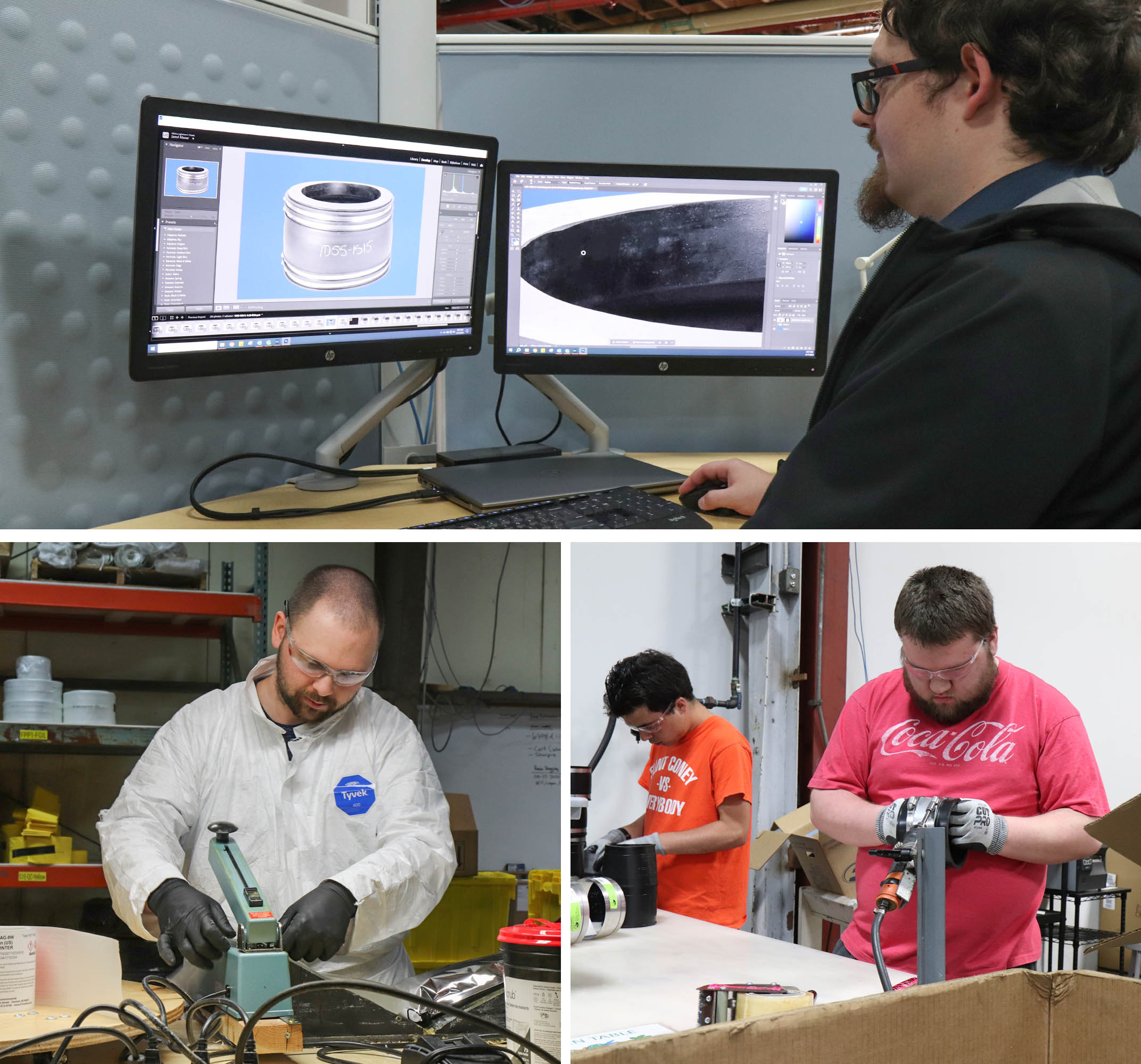
Some employers are hesitant to hire someone with a disability for fear of the unknown: perceived costs, misconceptions, or legal concerns, Sherwood said. Employers may also be reluctant if they perceive a lack of support.
That’s where vocational rehabilitation programs like VIP help.
Sherwood said her staff meet with the employer and conduct a task analysis to determine what the job entails, and a worksite assessment to identify any health or safety considerations to address.
They then match the job with a candidate, providing any additional training and skill development tailored to the needs and abilities of the business and the disabled person.
This can include job-specific skills, technical skills, and adaptive techniques to overcome barriers related to their disabilities. They help clients understand hard skills like operating a cash register, and soft skills like attendance, getting along with others, and taking direction from a supervisor.
Other support services include job coaching and job shadowing.
VIP is always open to assisting other community-based organizations and employers with vocational training, job tryouts, and mentoring, she said.
“We’ve gotten so many positive reviews on our clients from our existing partners and really appreciate the opportunities to assist employers in Genesee County and, of course, our clients,” Sherwood said.
BRIDGING THE GAP
The Way Coffee Co. is another local nonprofit organization that provides employment experiences for special education students as they leave high school. Founder and Director Olivia Sanders created the program for young adults whose learning disabilities prevent them from smoothly transitioning into the working world.
“We see ourselves as a bridge for those individuals on their journey to sustainable, long-term employment,” said Sanders, who has a background in special education. “All they need is some support and confidence.”
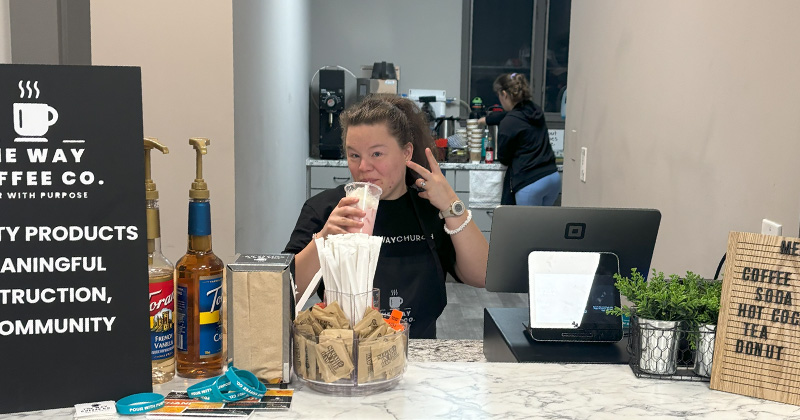
The Way Coffee’s primary focus is the instruction it provides on skills like time management, self-advocacy, collaboration, and food safety. Their main partner and instructional space is located within The Way Church in Fenton.
Oh, and don’t forget about the coffee.
The Way Coffee Co. runs a partnership program out of 2nd Street Learning, an alternative education program in Flint. There, students make merchandise that is sold on The Way Coffee Co.’s website and learn the tools they need to work in a coffee trailer which sets up at the school as well as local events across central Michigan.
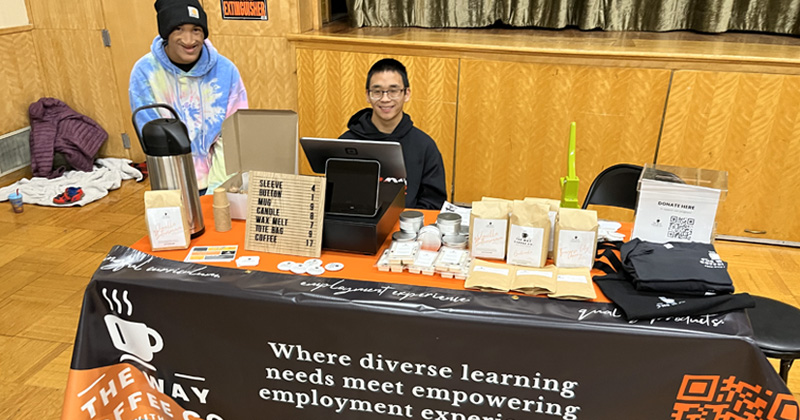
Soon, they’ll start a similar partnership with Fenton High School and open a coffee bar in a coworking space there to provide even more employment experience.
Sanders also envisions partnering with local companies to place students in jobs or coaching for accommodations on how to be a more inclusive business.
“I think it’s really important for businesses to understand there are resources available … you just have to ask,” she said.
CREATING OPPORTUNITY
For years, Flint’s Thelma Isabelle wondered what the future would hold for her son, Chance Stratford, who was diagnosed with autism at two years old.
“I always worried when it was time for him to get a job, what kind of work is he going to be able to do; who’s going to have the patience to take more time with his disabilities,” Isabelle said.
So, after years of working as a flight attendant and, later, a registered nurse, Isabelle decided to start her own company so her son would have a job to call his own. Honewa Scrubs Apparel, at 3430 S. Linden Road in Flint Township, opened in August 2023 selling medical apparel.
“I said this will be the perfect place for me to teach my son responsibility, job training, using a cash register, and learning how to be comfortable communicating with people,” she said.
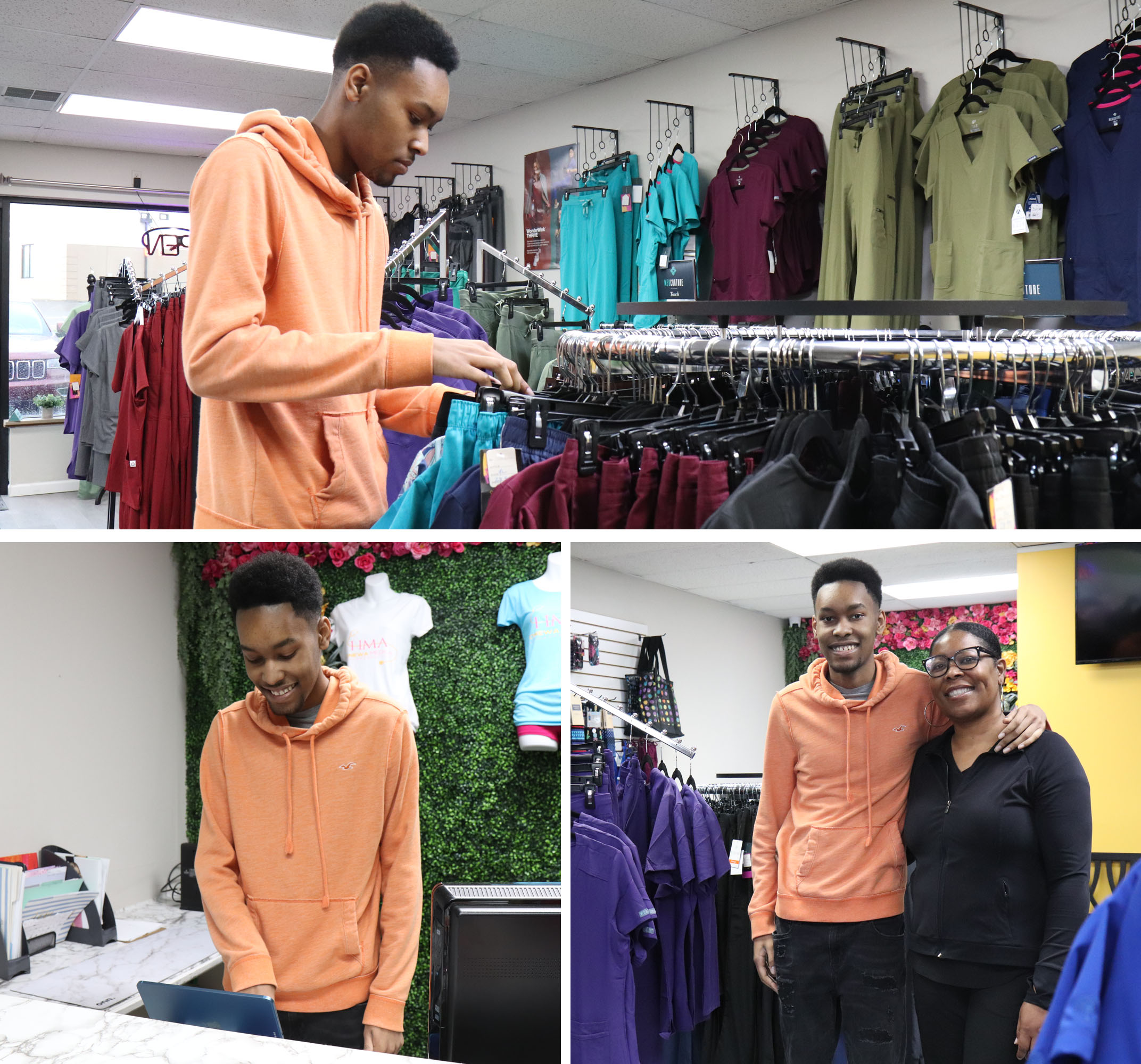
It took six months for 19-year-old Stratford to feel comfortable at the shop, but he now helps his mom out three days a week. It’s been a big boost to his self-esteem. Isabelle is thrilled with his progress and hopes someday her son can find a different job where he can socialize with people his own age.
For now, they’re both happy.
“To see him ring customers up on the register and say, ‘thanks for coming in’ or ‘have a nice day’ … wow! I never thought it’d be possible in a million years,” Isabelle said.
Human resource experts say inclusive work environments should provide all employees – including those with disabilities – the flexibility they need to shine. But creating an inclusive culture does take some planning and commitment.
At Fernco, the SPARK program offers a person-centered approach, ensuring that everyone is carefully matched with suitable job roles and environments. Fernco works with the Genesee Autism Support Resource Center to recruit workers and provide pre-employment training.
While most SPARK employees work in assembly and packing operations, they also play roles across various departments such as finance, marketing, customer service, and sales.
SPARK employees start at 20 hours per week earning $14 per hour with the same bonuses and benefits as all workers. At least a third of all SPARK workers are now full time, said Vicki West, SPARK director.
Fernco has been a great fit for Ainsworth. He works 25 hours a week but hopes to soon make his way to full time. He and his coworkers are good at their jobs because they’re detail-oriented, hard-working, and hyper-focused on completing assigned tasks, he said.
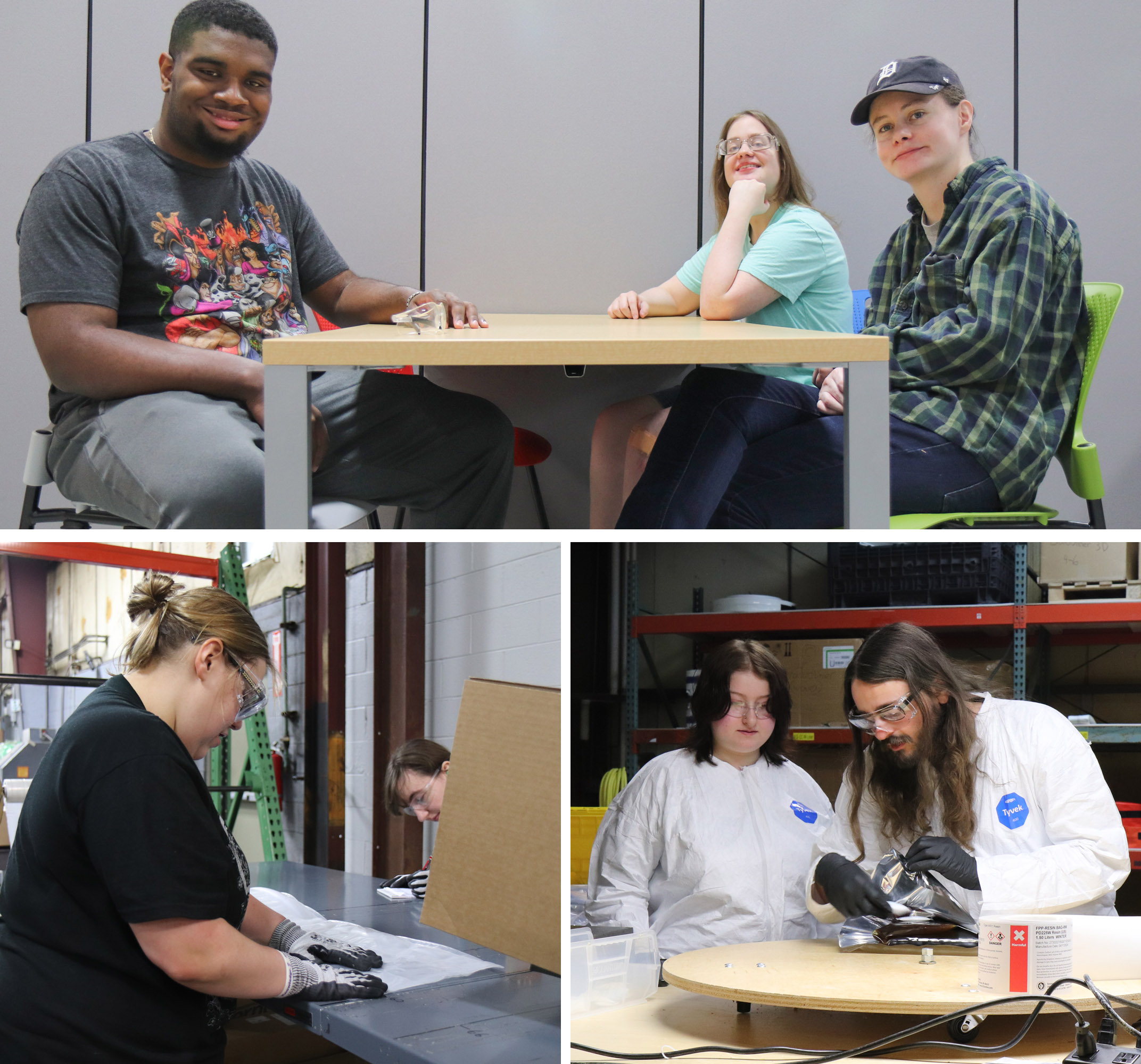
“I’m doing my best to become independent,” Ainsworth said. “It’s a slow process, but it’s still good progress.”
He also hopes more local companies create start-up programs like SPARK.
“There are a lot of people on the (autism) spectrum who would love to work in an industry that cares about them and supports them,” Ainsworth said. “I’m not only taking a step in the right direction, I’m growing as a whole person.”
